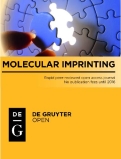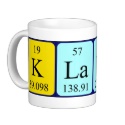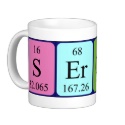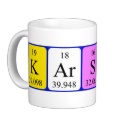|
|
Reference type: Journal
Authors: Pan GQ, Zhang Y, Guo XZ, Li CX, Zhang HQ
Article Title: An efficient approach to obtaining water-compatible and stimuli-responsive molecularly imprinted polymers by the facile surface-grafting of functional polymer brushes via RAFT polymerization.
Publication date: 2010
Journal: Biosensors and Bioelectronics
Volume: 26
Issue: (3)
Page numbers: 976-982.
DOI: 10.1016/j.bios.2010.08.040
Alternative URL: http://www.sciencedirect.com/science/article/B6TFC-50THX92-H/2/377f7969ddad9f9c86a6261cf2978028
Abstract: A new and efficient approach to obtaining molecularly imprinted polymers (MIPs) with both pure water-compatible (i.e., applicable in the pure aqueous environments) and stimuli-responsive binding properties is described, whose proof-of-principle is demonstrated by the facile modification of the preformed MIP microspheres via surface-initiated reversible addition-fragmentation chain transfer (RAFT) polymerization of N-isopropylacrylamide (NIPAAm). The presence of poly(NIPAAm) (PNIPAAm) brushes on the obtained MIP microspheres was confirmed by FT-IR as well as the water dispersion and static contact angle experiments, and some quantitative information including the molecular weights and polydispersities of the grafted polymer brushes, the thickness of the polymer brush layers, and their grafting densities was provided. In addition, the binding properties of the ungrafted and grafted MIPs/NIPs in both methanol/water (4/1, v/v) and pure water solutions were also investigated. The introduction of PNIPAAm brushes onto the MIP microspheres has proven to significantly improve their surface hydrophilicity and impart stimuli-responsive properties to them, leading to their pure water-compatible and thermo-responsive binding properties. The application of the facile surface-grafting approach, together with the versatility of RAFT polymerization and the availability of many different functional monomers, makes the present methodology a general and promising way to prepare water-compatible and stimuli-responsive MIPs for a wide range of templates
Template and target information: 2,4-Dichlorophenoxyacetic acid, 2,4-D
Author keywords: Molecularly imprinted polymers, Water-compatible, Thermo-responsive, Polymer brushes, RAFT polymerization
|


 Klaus periodic table name mug
Klaus periodic table name mug







 Sergey periodic table name mug
Sergey periodic table name mug







 Karsten periodic table name mug
Karsten periodic table name mug






